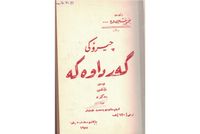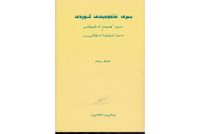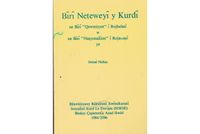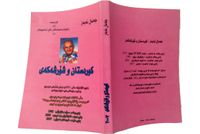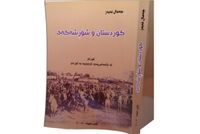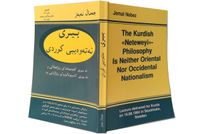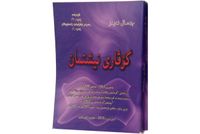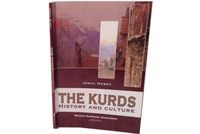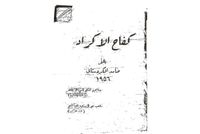Welcome!
Dear Visitors! Dear friends of the Jemal Nebez Foundation!
Awarding of the Jemal-Nebez Prize 2025
On September 21, 2025, the Jemal-Nebez Prize was awarded to Professor Khanna Omarkhali from the Free University of Berlin during a festive and moving ceremony in recognition of her outstanding academic contributions to Kurdish studies, particularly in the field of Yezidi research.
Dear Visitors! Dear friends of the Jemal Nebez Foundation!
Considering the two major wars currently occupying international politics, one in Europe concerning Ukraine and the other in the Near and Middle East concerning Palestine in Gaza, with both being conducted increasingly ruthlessly and showing no signs of the opponent relenting, the possibility of these wars escalating into a Third World War cannot be excluded.
We believe that in this situation, the Kurdish question should by all means be recalled, specifically the arbitrary division of Kurdistan.
The division of Kurdistan was, as is well known, decided by the Treaty of Lausanne. The newly established League of Nations was supposed to make the gradual division into multiple states bearable for the cultural nation of the Kurds, which it failed to do. There was a lack of empowerment. And for the successor organization to the League of Nations, the United Nations which were founded shortly after World War II, the Kurds and Kurdistan were no longer a concern, and none of its member states ever raised an objection.
Moreover, at no general assembly of the United Nations has this uniquely unjust situation ever been addressed, not even after repeated horrific incidents that were subsequently classified as genocide, even as chemical genocide.
Those who believe that it is futile to remind of something that is still internationally insignificant overlook the fact that the Kurds and Kurdistan, due to the circumstances of their arbitrary division and what followed, have a firm place in history, supported by countless documents.Meticulous documentation and persistent reasoned argumentation have made this possible. Countless historians worldwide and capable individuals in all parts of Kurdistan and in the diaspora have worked hard for this, regardless of their scattered situation.
Our namesake Jemal Nebez had his own part in this effort, which is why remembering him is even more important to us. Jemal Nebez's motto and self-chosen name were: never to relent in raising awareness about the situation of the Kurds in Kurdistan and elsewhere. Nebez means 'the one who does not give up.'
To preserve and exhibit the thinking and work of Jemal Nebez, the Jemal Nebez Foundation has been established. After five years, we are finally able to take a systematic inventory of his scientific and journalistic legacy, always seeking ways to make its contents accessible to those interested.
Supporting members are always welcome!
With all good wishes and warm regards,
Jemal Nebez Foundation
Non-profit and legally capable
Here in the gallery below we show some books and writings of our namesake, which are listed on his former website www.jemalnebez.org which is now administered by the Jemal Nebez Foundation.
If you have a not yet listed writing of Jemal Nebez in your possession, please let us know, gladly via our contact form. The goal is a comprehensive directory of the works and writings of our namesake. Any help is welcome.


